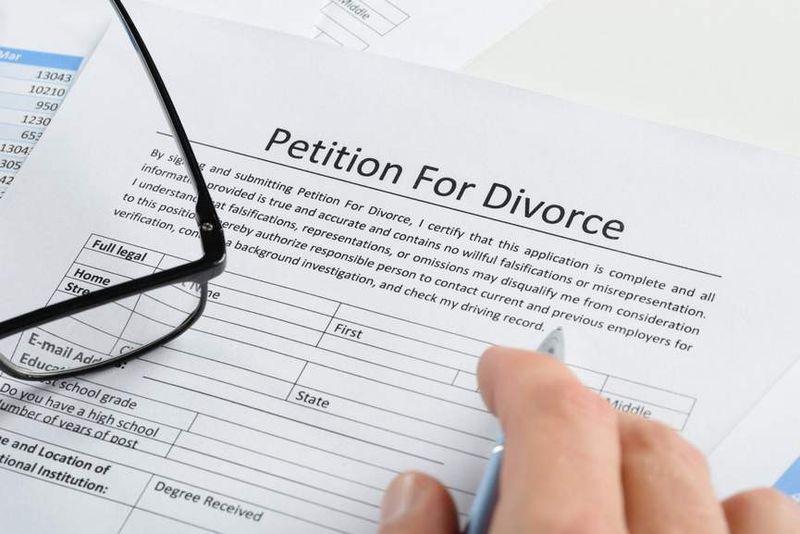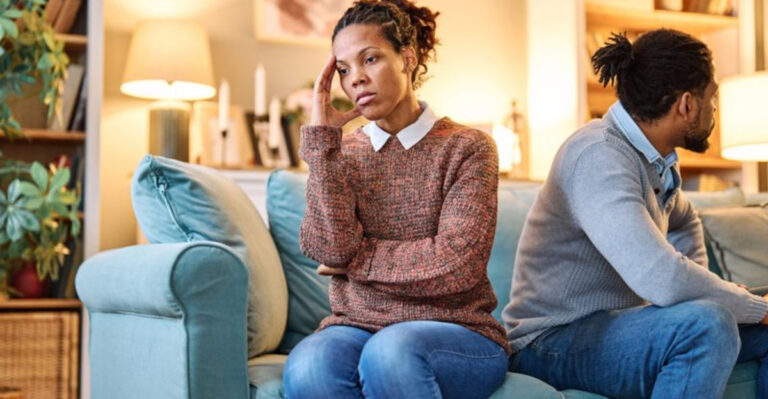Can You Get A Divorce Without A Lawyer? 15 Questions To Consider
Deciding to end a marriage is never easy, and the question of whether to hire a lawyer or handle the divorce process yourself is critical. While some divorces can be managed without legal assistance, many factors must be considered before making this decision.
This guide explores fifteen essential questions that can help you assess your unique situation. From understanding state laws to navigating emotional dynamics, each question offers insights into whether self-representation is suitable for you.
Whether it’s the complexity of assets or the emotional intensity of negotiations, these considerations will guide you in making an informed choice. Explore these questions to determine the best path forward for your divorce.
1. Is your divorce uncontested?

An uncontested divorce can simplify the process immensely. In such cases, both parties agree on all major issues, such as property division and child custody, leaving little room for dispute. Without conflicts, the need for a lawyer decreases, making self-representation a viable option.
However, even uncontested divorces require attention to detail, ensuring all agreements are in writing and legally sound. The ability to remain amicable throughout the process is key to success. Legal tools and resources can help streamline proceedings without the need for attorney fees.
If you and your partner can maintain a cooperative spirit and resolve issues independently, handling the divorce yourselves might be feasible. Evaluate your situation carefully to make the right choice.
2. Are you both willing to cooperate?

Cooperation between spouses is fundamental when considering a divorce without legal representation. If both parties are committed to working through differences and finding common ground, the process can be more manageable.
Mutual respect and clear communication are vital. When both partners are willing to compromise, it can reduce stress and legal complications. However, if either party harbors resentment or unwillingness to cooperate, the process can become challenging.
Successfully navigating a lawyer-free divorce requires clear expectations and a shared vision for the future. Assess your ability to collaborate consistently to determine if you can finalize the divorce amicably. Willingness to work together is a cornerstone of this endeavor.
3. Do you fully understand your state’s laws?

Understanding local divorce laws is crucial when forgoing legal representation. Each state has unique regulations, affecting everything from filing procedures to division of assets.
Taking time to research and comprehend these laws is essential. Without proper knowledge, you might overlook important legal requirements, risking future complications.
Online resources, law libraries, and community legal aid can offer valuable information. Familiarity with legal jargon and processes can empower you to handle your divorce with confidence. Evaluate your grasp of state-specific laws to ensure a smooth, lawyer-free divorce.
4. Are there minor children involved?

When minor children are involved, divorcing without a lawyer can become more complex. Issues of custody, support, and parenting time must be handled with care and precision.
Ensuring the well-being of the children is paramount. Parents must agree on a suitable arrangement, balancing emotional needs and legal obligations. Without professional guidance, this can be a challenging task.
If both parents prioritize the children’s best interests and can collaborate effectively, navigating this without legal counsel might work. However, complexities in child-related matters often necessitate expert advice to avoid future conflicts.
5. Can you agree on child custody and support?

Agreeing on child custody and support is a vital aspect of a divorce without a lawyer. If both partners can reach a fair and sustainable agreement, it minimizes the need for legal intervention.
Open dialogue and empathy are key to understanding each other’s perspectives and ensuring the children’s needs are met. Consider the financial and emotional implications of various arrangements and strive for a solution that benefits all parties.
If disagreements arise, mediation may be necessary to facilitate a resolution. Assess your ability to negotiate and compromise on these sensitive issues to determine if self-representation is possible.
6. Do you share significant assets or debts?

Dividing significant assets or debts can complicate a divorce. Without a lawyer, this requires careful consideration and negotiation to ensure fairness.
The complexity of shared investments, properties, and liabilities may demand a detailed approach. Transparency and honesty are crucial in discussing financial matters to avoid misunderstandings.
Consider the long-term implications of your financial decisions and work collaboratively to achieve an equitable division. If assets are substantial, legal guidance might be necessary to protect your interests and prevent future disputes.
7. Are you confident dividing property fairly?

Being confident in dividing property fairly is essential when tackling a divorce without legal aid. Equitable distribution requires both parties to engage in open discussions about ownership and value.
A willingness to compromise and a clear understanding of your shared possessions are necessary. Documenting agreements and understanding legal entitlements will help avoid future disagreements.
If both partners can approach this with reason and mutual respect, handling property division independently is achievable. Evaluating your ability to fairly divide assets will guide your decision to proceed without a lawyer.
8. Will emotions stay in check during negotiations?

Keeping emotions in check during divorce negotiations is crucial, especially without a lawyer. Emotional control allows for rational decision-making and constructive discussions.
Understanding your emotional triggers and working to manage them can facilitate smoother interactions. Consider stress-reducing techniques like meditation or counseling to maintain composure.
If both parties can set aside personal grievances and focus on practical solutions, self-representation becomes more feasible. Assess your emotional readiness to handle the intricacies of divorce with a level head.
9. Do you understand your retirement account rules?

Understanding retirement account rules is vital for those considering a divorce without a lawyer. Splitting retirement assets can be legally complex and requires deep knowledge of applicable regulations.
Consulting with financial planners or researching government resources can aid in grasping the intricacies involved. Mistakes in this area can be costly and impact future financial security.
If you have a solid understanding of your retirement accounts and how to divide them, self-representation might be possible. Carefully evaluate your financial literacy in this area to make informed decisions.
10. Are you familiar with filing requirements?

Filing requirements for divorce vary by jurisdiction, and familiarity with these is crucial for those going lawyer-free. Accurate completion of paperwork and adhering to timelines are vital.
Understanding the necessary forms and procedures can prevent delays and mistakes. Online resources and court assistance programs can offer guidance.
If you can navigate the filing process confidently, self-representation becomes more attainable. Ensure you understand the specific requirements to avoid unnecessary complications.
11. Is one partner trying to control the process?

En one partner tries to control the divorce process, self-representation can become problematic. Power imbalances may lead to unfair outcomes and increased tension.
Recognizing manipulation and maintaining a stance for fairness is essential. If you feel pressured or bullied, seeking legal support might be necessary to protect your interests.
Evaluate whether both parties can engage as equals and respect each other’s perspectives. If balance and mutual respect are lacking, proceeding without a lawyer may not be wise.
12. Could you benefit from mediation instead?

Mediation offers a valuable alternative to traditional divorce proceedings. It provides a platform for open dialogue, guided by a neutral third party, to resolve disputes amicably.
Considering mediation can reduce stress and costs associated with legal battles. It fosters mutual understanding and collaborative problem-solving.
If both partners are open to compromise and value external guidance, mediation might be the best path forward. Weigh the benefits of mediation to see if it aligns with your needs.
13. Will self-representation save you money?

Self-representation can be a cost-effective option, but it’s essential to weigh potential savings against the risk of costly mistakes. Legal fees can be substantial, but inadequate handling of the divorce might lead to future expenses.
Consider the complexity of your case and your confidence in managing legal procedures. Money saved now might not justify complications later.
Evaluate whether the financial benefits of a lawyer-free divorce outweigh the risks. Careful consideration of the financial impact is crucial in deciding your path.
14. Are you prepared for court procedures?

Preparing for court procedures without a lawyer demands thorough understanding and confidence. Familiarity with legal protocols and presentation skills are necessary.
Researching court etiquette and practicing your case can enhance your readiness. Mistakes in court can have long-lasting consequences, impacting the final outcome.
If you feel equipped to handle the formality and pressure of court appearances, self-representation may succeed. Assess your preparedness for this challenging aspect of divorce.
15. Would consulting a lawyer avoid future regrets?

Consulting a lawyer might prevent future regrets by providing professional insights into complex legal matters. Legal professionals can identify potential pitfalls and offer tailored advice.
Reflecting on the benefits of expert guidance can clarify your path. A consultation doesn’t necessarily mean full representation; it can provide reassurance and clarity.
Consider whether professional input could enhance your decision-making and avoid future complications. Weigh the peace of mind that comes with legal counsel against your desire for independence.







